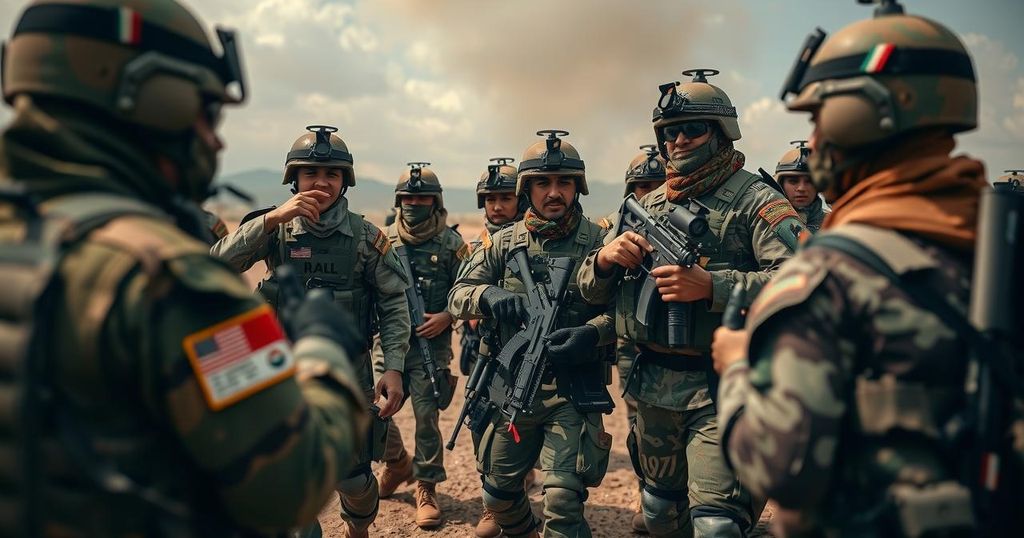The Central African Republic reported the surrender of several hundred rebel fighters, following a border security agreement with Chad. The surrenders were prompted by food shortages and military pressure, with local elections now planned for December 29 after previous delays. Both countries are collaborating to enhance security along the border and encourage further disarmament of rebel groups as a pathway to stability.
On Wednesday, the Central African Republic (C.A.R.) announced that several hundred rebel fighters have surrendered and relinquished their arms to government and United Nations forces. This development follows an agreement reached between C.A.R. and Chad, aimed at jointly safeguarding their extensive 1,200-kilometer border. C.A.R. officials express optimism about organizing local elections, previously delayed in October due to security concerns. The government’s efforts to combat rebel forces led to these yields, with many rebels reportedly resigning under the duress of inadequate food supplies amid ongoing raids by government troops. Among the defectors is Mloubo Etienne, a 36-year-old fighter who abandoned the Union for Peace rebel faction, one of the C.A.R.’s most formidable armed groups. In a statement broadcasted via state television, Etienne highlighted the unbearable living conditions due to a lack of sustenance in the tropical forests by the southern border. He also noted that many UPC fighters along northern Chadian borders are compelled to surrender, as government troops there have obstructed regular food supplies. Maxime Balalou, the Minister of Communication and government spokesperson for C.A.R., noted that some of the 105 fighters disarmed in Bambari, the country’s third-largest city, were affiliated with either the UPC or anti-balaka groups. Another operation in Kouango resulted in the disarmament of 36 rebels, including three women. Balalou emphasized that those who voluntarily disarm will be transferred to the C.A.R. Center for Disarmament, Demobilization, and Reintegration for social reintegration and training to join the national military. The anti-balaka group has been operating for a decade, often in opposition to government forces. The C.A.R. government is conducting military operations against rebel hideouts that continue to resist surrendering. Officials aim for these measures to lay the groundwork for C.A.R.’s first local elections in 36 years, now scheduled for December 29, provided the security environment allows it. Recent discussions between C.A.R. and Chadian representatives on October 23 resulted in an agreement to create a joint security force along their border, with Chad pledging to mobilize troops to prevent supplies from reaching rebels. The C.A.R. government has issued a stern warning stating that any rebels remaining in hiding will face lethal consequences should they fail to surrender their arms to government forces or U.N. support troops. C.A.R. seeks to persuade a minimum of half of the estimated 21,000 rebel fighters within its borders to disarm by the end of 2025, as this initiative seeks to foster stability and a return to democratic governance.
The Central African Republic has been plagued by civil unrest and armed conflict for many years, with multiple rebel factions vying for control. Recently, the government has taken decisive action in collaboration with regional partners, such as Chad, to enhance security and combat these armed groups. The situation remains precarious, with significant efforts required to restore peace and prepare for the delayed local elections, aimed at fostering democratic processes and governance within the country.
In conclusion, the recent surrender of several hundred rebel fighters in the Central African Republic marks a significant step towards stabilizing the region and facilitating local elections. The efforts, driven in part by the joint security initiatives with Chad and the government’s military operations against rebel strongholds, indicate a commitment to peace and reconstruction. The upcoming elections, critical for democratic development, are contingent upon the ongoing efforts to disarm and reintegrate former combatants into society.
Original Source: www.voanews.com






